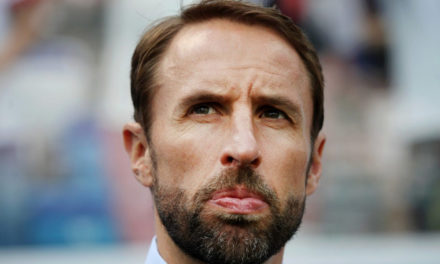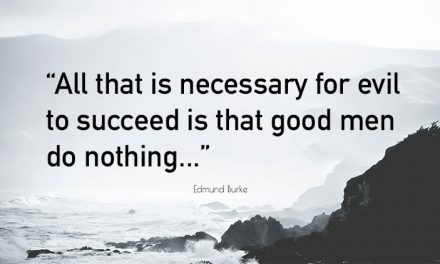I bumped into former Lib Dem leader Paddy Ashdown at Heathrow yesterday, and found myself on the same flight. We were able later to swap stories about random encounters with passers-by. In his case, someone saying to him ‘didn’t you used to be Paddy Ashdown?’, in mine someone asking me if I was Alastair Campbell and, when I confirmed I was, telling me his name was Alastair Campbell too, adding ‘have you any idea what my life has been like these past few years?’
I always had a lot of time for Paddy, even if I was never exactly persuaded of TB’s strategy for dealing with his party. He was a good third party leader and has since gone on to do important and valuable work, particularly in Bosnia. The skills he deployed there would not have gone amiss in Afghanistan.
But he got me thinking about the role of the Lib Dems today. I cannot claim to be an expert on Lib Dem internal politics. Nor can I claim to have detected a political or electoral strategy of any great clarity. That may be deliberate on the part of Nick Clegg, who will be hoping to garner support of people tired of Labour but not remotely convinced of the Tories under David Cameron.
But as two powerful political impulses collide – namely ‘time for a change’ and ‘are the other lot really up to it?’ the buzz around the prospect of a hung Parliament will grow, and Clegg’s positioning within the bigger political picture will have to become clearer.
The Lib Dems have a reputation as good local campaigners, able to tailor their messages to suit local audiences. But when it comes to a general election, people know they are electing not just their own MP, but the government and the Prime Minister. And they know that the Prime Minister will be either Gordon Brown or David Cameron.
As to where Clegg stands on the possible ramifications of a hung Parliament, he will not be able to get through an entire campaign without having the outline answers ready. Would he be willing to work in alliance with Labour? Would he be able to do the same with the Tories?
I suspect, whatever his personal preferences, that he will not be allowed to do either. There are fiercely anti-Labour forces in his party, and fiercely anti-Tory forces as well. I’m not convinced they can be reconciled.
All of which makes the prospect of a hung Parliament not terribly attractive in a country not used to its politics of compromise. Which means the country may prefer to give a clearer verdict one way or the other. Labour or Tory. No messing around in the middle. So the Lib Dems get squeezed. Or am I missing something?




Shame Ashdown didn’t join the government. Then we might have had one GOAT who lasted.
If I were a Lib Dem strategist, I would be urging Clegg to talk up a hung parliament and make clear that his party would go into coalition with either party which adopted his red lines. These could be long-standing LD policies such as a move to PR (ie not AV) and newer policies like the mansion tax.
This would give his manifesto a higher profile, insure himself against charges of dithering post-election, and potentially boost the LD vote in the process since he would be saying vote LD for a hung parliament & our ability to hold the balance of power.
Clegg strikes me as a lightweight version of Cameron – and you don’t get much more lightweight than that.
So what you are saying is if there is a hung parliament we may end up with a minority government. Interesting times… in those circs might be better to let Cameron screw it up…
I think the Lib Dems picked up a lot of seats due to tactical or protest votes. Surely they are are bound to lose a lot of seats as the election careers to being more tribal
Surely there is scope for Labour and the Lib Dems to work together in a hung parliament given that both are (mostly)
– In favour of the EU
– In favour of taking action on climate change
– In favour of re-balancing the tax system to help out those on low and middle incomes
– In favour of cutting the budget defecit only when the recovery is firmly established
– In favour of a referendum on changing the Westminster electoral system
– In favour of directing more resources in education to the least well off
With regards to the differences, civil liberties are a major one but as an outsider it seems that many Labour MPs (and voters) would have been more comfortable with the Lib Dem stance anyway.
Cameron would never agree to a referendum on PR, his party would never allow him a moderate position on Europe and his tax policies are completely at odds with the Lib Dems. I see no way they could work together but it is perhaps more do-able that Labour and the Lib Dems could for at least a couple of years.
Also having Clegg, Cable, Hune and Ashdown in the Cabinet would freshen up the government no end.
I’ve been thinking for some time that a coalition between Labour and the Lib Dems could be very constructive.After all, many shared values.If the result of the election is a hung parliament- I hope this will be a real possibility.It might shake things up a bit.
I think those Lib Dems who are “anti” either party- need to think about what’s best for the electorate and the country- snd it would be a real chance to be in the thick of it.
I heard ?Roy Hattersley and David Steele discussing similarities between the party’s ideologies on R4 at the weekend- and it was refreshing to hear a consensual style of debate- and adult conservation….I do think all options need to be considered.
We should be united in not allowing a return to Tory politics!!!
Thanks Alistair.
The public don’t perceive enough of a difference in policy between the three parties to be too concerned at the prospect of a hung parliament. This may well be a misjudgement but that’s the impression I get of the public mood (for what my opinion is worth). The parties need to better communicate the differences so people understand the choices. I think Brown does lack an ability to connect emotionally to people and Labour urgently need to reach out beyond their base/core vote. They need to connect to the aspirational middle class. Miliband is too much of a technocrat to do this. Purnell had that appeal…Labour’s strongest card in communicating beyond their base and someone not perceived as a career politician is Alan Johnson. Likeable, common touch but not perceived as chippy (and he knows how to wear a suit!).
Leaving to one side my disagreement over Ashdown I think that the Lib-Dems may be squeezed.
If Labour’s political fortunes continue to rise Clegg will need to take tory votes, and, being a tory of his sort, that is what he will try to do.
Most Lib-Dem MPs would give their souls to be Dep Under Lickspittle at the Min of Tax Avoidance/GiroBankMonitoring.Off.Wot?
While MPs are not quite as venal as made out, amour propre builds coalitions.
I watched round two of the debate between Fiona Millar and Toby Young, thought there was no clear winner and was struck by how little either of them said about private schools, despite the huge, in my view mostly positive, role they play in our education system.
Paddy gets better with age – pity NL did’nt get him on board like Dannatt.
The Eton attacks are hurting but greater collateral damage could be caused by by attacking Click Camerons false posing.
Various commentators report increased doubt about Bikerman as the voters are beginning to see that there is’nt much behind the veneer.
There’s a certain ‘Restoration’ feel in the air at CO –
the cavaliers are about to reclaim their natural birthright and Georgie Porgie is very excited !
Those of us with experience of the Lib Dems can testify that their big problem- certainly one that little Clegg will be unable to square at a General Election- is that they say different things in different parts of the country. You therefore have the bizarre spectacle of Eurosceptic Lib Dem MPs playing to the gallery in the South West, fedaralist Lib Dem MPs in Scotland and Wales, soak the rich Lib Dem MPs in the inner cities, and lay-off-the-rich Lib Dem MPs in the leafy shires.
They really are a rag bag coalition of opportunists- even worse that Will Straw’s father in some respects.